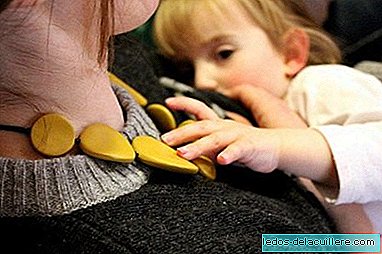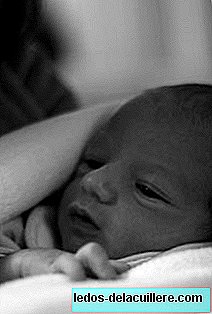
Being exposed to contagion and working on rotating shifts even for 24 hours can put breastfeeding at risk, and that is what a midwife claimed in that situation. But the mutual that evaluated it considered that it was not so, and the mother wanted to take it to court. Now, justice gives the reason to the midwife who was denied leave for risk of breastfeeding.
The Social Chamber of the Superior Court of Justice of the Region of Murcia (TSJRM) has recognized that a midwife of the Murcia Health Service suffers, in the exercise of her professional work, a risk for breastfeeding her baby, when subjected to a system of rotating shifts and being exposed to contagion by biological agents.
The mutual considered that it could not be deduced that the work could negatively influence the health of the nursing working mother or that of her son. Thus, the court has now condemned the mutual to pay the midwife an economic benefit.
Probably the woman would have preferred the favorable solution to her case at the time, but it is important both that these cases come to light and that justice be decided in favor of the rights of working mothers, who are the ones who see the most impediments your day to day
Fortunately, there are more and more sentences in this regard, that of defending the rights of working mothers, also those who breastfeed their babies and want to do so without risk and in acceptable conditions.
In the sentence we commented on, the court considers that the midwife's rotating system and the six guards a month of 24 hours, together with the need to use adequate preventive means to avoid contagion to biological agents, are "sufficient" causes to estimate the resource raised, as there is a risk to breastfeeding.
Chronology of the facts
The events date back to December 2009, when the woman gave birth and began the maternity leave and feeding her baby to the breast.
In March 2010, the midwife submitted a written form to the managing director of the Murcia Health Service requesting the adaptation of working conditions and relocation as a nursing mother whose work performance can negatively affect her or her child's health status and the processing of the situation of 'Risk during breastfeeding'.
In the aforementioned brief, she claimed that she was the mother of a child under nine months of age, referring as a particular circumstance that her job could negatively influence her health status or that of her son, by "biological risks" and "turnicity."
Specifically, it attached a technical report prepared by the Occupational Risk Prevention Service in which it specified the working conditions of risk for breastfeeding.
Based on the results of the evaluation, the report recommends preventive measures "whenever possible by a precautionary principle", while advising
Do not perform night work on a regular or rotating basis, do not exceed eight-hour shifts and allow pauses during the working day for breastfeeding or the extraction of milk for later use, in a place suitable for such practice, with privacy , comfortable reclining seat and adequate hygienic conditions.
Regarding the biological agents, the report considers that the worker must have at her disposal the necessary means of biosafety to carry out her tasks, as well as take into account the Universal Precautionary Measures for the manipulation of biological samples in order to avoid contamination of the skin and clothing, and thus avoid the appearance of mastitis or infections in the infant.
In spite of all these data, the medical supervisor of the mutual management center, Specialist in Occupational Medicine, issued a certificate indicating that from the information provided it could not be deduced that the work could negatively influence health of the nursing or nursing mother of the child, and the Mutual agreed to deny the benefit.
After comings and goings by the courts (which in principle acquitted the mutual, the National Institute of Social Security and the Murcia Health Service), justice has finally recognized the midwife's requests. Undoubtedly, good news will encourage more working mothers to defend their rights (and hopefully discourage some to make it more difficult).












